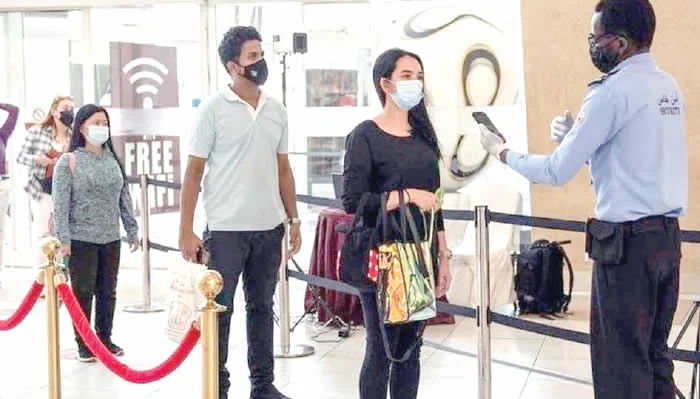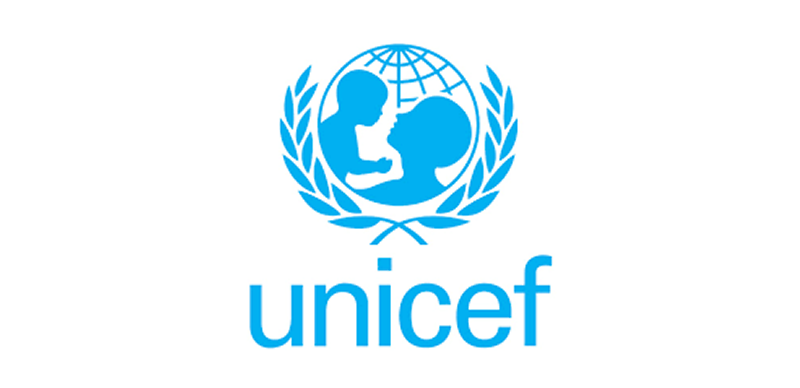Nigeria Should Be Careful Before Adopting Covid-19 Scanners – Experts

The EDE scanner Source: Media office, Abu Dhabi
The COVID-19 pandemic and the lockdown imposed by the government at different levels in different parts of the world brought about an increase in the dependence on technology for continued human interaction, business engagements and sustained activity in the work environment as well as access to health care services.
As a result, globally, the technology industry experienced exponential growth as individuals and organisations adopted various technological platforms to connect with friends, families and to continue with their jobs.
For example, a BBC report in July 2021 showed that Apple’s profit almost doubled to $21.7bn in the three months to June 30. Also, Microsoft recorded a $16.5bn profit within the same year while Google’s parent company, Alphabet, said its quarterly sales and profits surged to a record high. YouTube, which is its video platform, said its advert revenue jumped to $7bn in the three months ending 30 June, in comparison with $3.81bn the year before.
Global management and consulting firm, McKinsey and Company, reported that the COVID-19 pandemic accelerated the adoption of digital technologies at both industry and organisational levels, adding that such changes had come to stay for the long haul.
A data and finance blog, World Bank Blogs, also reported accelerated adoption of artificial intelligence, automation and new technology by organisations during the COVID-19 pandemic. A 2020 research by the World Bank Group also revealed that 49 per cent of firms responded to the pandemic by making greater use of technology.
The health care industry was not left out; an organisation of researchers, Robotics for Infectious Diseases, stated that as of July 2021, about 33 countries made use of robots to ‘fight’ the pandemic.
The robots served as first responders in hospitals and clinics, channels to connect patients and doctors (Telemedicine) as well as help patients see and speak with loved ones (Telepresence).
Seeing the import of the robotic devices at the outset of the pandemic, more technological health inventions that could detect the virus have been invented.
As a way to further combat the spread of the coronavirus, expedite testing time and access to public places, the United Arab Emirates in June 2021 introduced an electromagnetic scanner that could detect, within minutes, if an individual had COVID-19 and provide an immediate result.
The UAE, where the scanner was invented, is known to have advanced its use of technology and artificial intelligence over the years.
A statement from the Abu Dhabi media office stated, “The new EDE scanning system is based on technology that includes an EDE detector that collects electromagnetic waves within a five-metre radius. When a person enters that radius, the electromagnetic waves are altered.
“A machine learning algorithm compares the information against the unique COVID-19 RNA molecule. If it is positive, the person is potentially infected and must take a PCR test within 24 hours. If it is negative, they can enter the location.
“The EDE scanning system is an additional precautionary measure being used at shopping malls, some residential locations and land and air entry points across the emirate.”
Recently, Zanzibar became a recipient of the EDE scanners from the UAE, making it the first African country to receive the new invention and set the precedence in the fight against COVID-19.
The statement announcing the release read in part, “This move by the government is indicative of its vision to harness modern technology to create opportunities out of challenging times. In the height of the COVID-19 pandemic and as the virus continues to mutate into more variants, the EDE scanners are a sure precautionary method that will help create safer spaces and maintain public health.
“The scanners will be part of a billion-dollar lab and research project that the government of Zanzibar will benefit from once installed as they are non-contact and can be used for mass screening. This integrated approach to combating COVID-19 will give tourists peace of mind as they can move about entry points easily while at the same time being assured of their safety as far as COVID-19 is concerned.”
Meanwhile, in February, The Punch reported that the Vice-President, Prof Yemi Osinbajo, during the United Bank for Africa Group Chairman’s Forum for 2022, emphasised the need for improved access to health care services through the use of technology.
Osinbajo said, “We have a robust health system but the issue is that there are just several millions of people out there in every nook and cranny. Technology must play a role; technology must play an increasing part in our abilities to be able to reach our population everywhere they may be.”
However, medical experts, while praising the positive effects of technology in the health sector, further questioned the reliability and continual functioning of the EDE scanners.
On her part, a professor of Medical Virology/Microbiology, University of Maiduguri, Borno State, Marycelin Baba, said the scanners reflected progress but advised that Nigeria should tread carefully in purchasing the scanners.
She said, “Technology is very good and I am not against it but I don’t want a situation where we just emulate without knowing anything. The real-time Reverse Transcription Polymerase Chain Reaction is the standard test done in different COVID-19 laboratories. However, some labs bought an automated RNA extraction machine that does the test fast and when the consumables were exhausted, they could not buy them immediately. Some of them could not replace it for six months.
“For Zanzibar that has received this scanner, after the donation, is there any contract agreement for the maintenance of the scanner, regular preventive services, backups, and the number of people trained to use the machines?
“The machine for immediate use is okay and there is nothing wrong with it, especially for air travellers but how accurate are the test results? The standard for COVID-9 testing remains the real-time PCR. Even provinces in the United Kingdom would insist on the PCR test because the PCR gives the accurate description of the virus.”
The don stated that the accuracy of the scanners in testing for the specificity and sensitivity of the virus should be determined before being adapted in the country.
“I am not against the new technology, the more they come, the better for us but we have to embrace it with caution. We need scientific and evidence-based information to guide our decisions,” she stated.
Another medical expert, Dr Olusina Ajidahun, said the scanners would ensure minimal contact of persons during testing but raised concerns over the global acceptance of the test results.
Ajidahun said, “I think the innovation reflects forward thinking in that it tries to put away minimal contact as much as possible; it is just like going cashless. But looking at the theory of how it functions, these are some limitations it would have in Nigeria.
“First, I’m sure it is going to be expensive and I am not sure if a country like Nigeria would want to invest in that when they can invest in the conventional nasal swap. Two, the technical know-how is still not clear-cut and that would require training for those who would handle its operations.
“Another challenge would be that COVID-19 is not the only virus in that family, so it is possible someone might not have a COVID infection but a virus that mimics that of COVID-19 and such a person would test positive whereas the person might have another viral infection like flu, common cold or other viruses that might stimulate something similar to what the COVID-19 would stimulate.”
He added that the measures should be put in place for the maintenance, acceptability and adaptability of the scanner to the Nigerian climate as well as further research on whether humans with COVID-19 emit a different electromagnetic wave that could make the scanner identify the virus.
Another health expert, Prof John Onuminya, stated that although the scanner would reduce the time it took for the results of the standard test to be out, it could not detect the COVID-19 strain of individuals who are tested by it.
Onuminya stated, “The first thing you would raise with that type of technology is its limitations. With the multiple COVID-19 strains, molecular testing would be required to detect such virus strains. The shortfall of PCR is the longer time it takes before the results are out, albeit there are new technologies for quick molecular testing producing results within five minutes. By and large, the molecular assays are more sensitive.”







